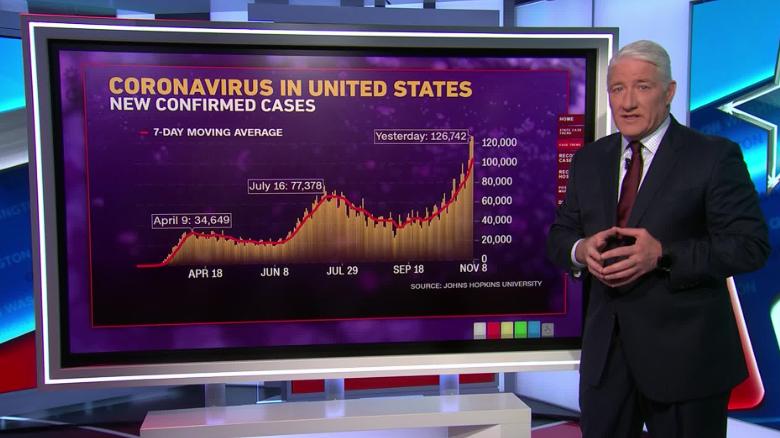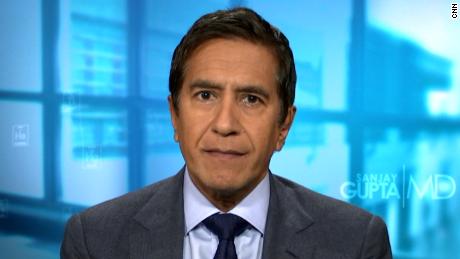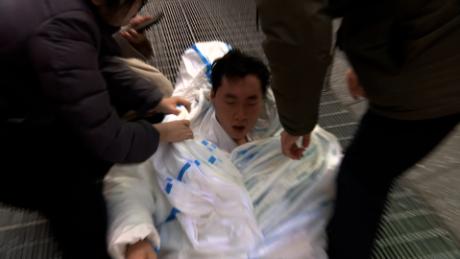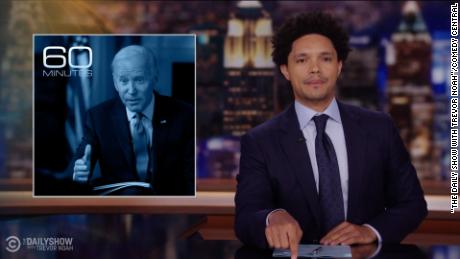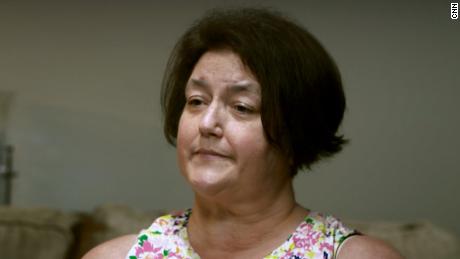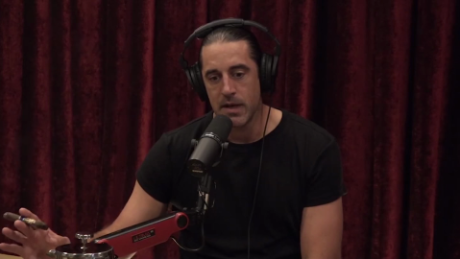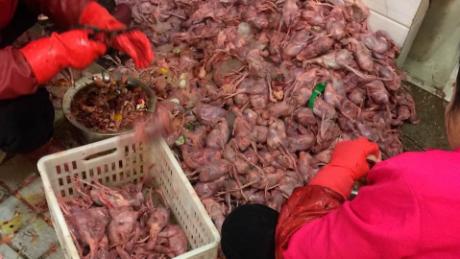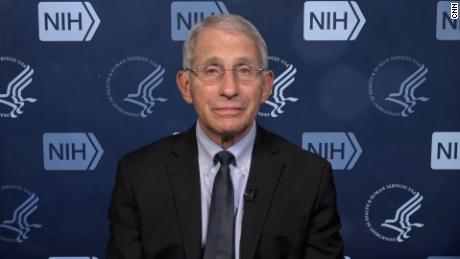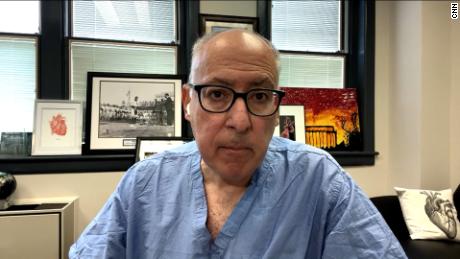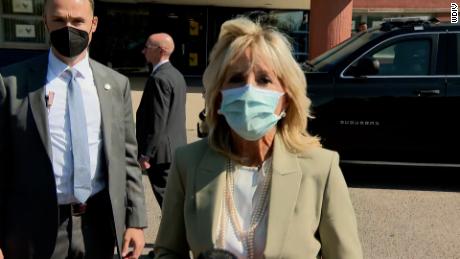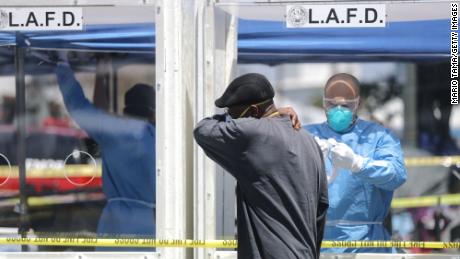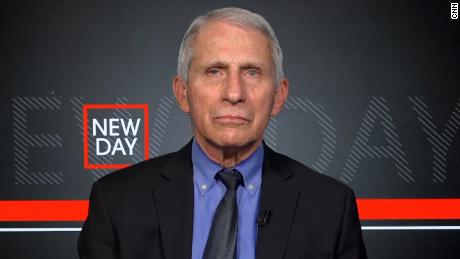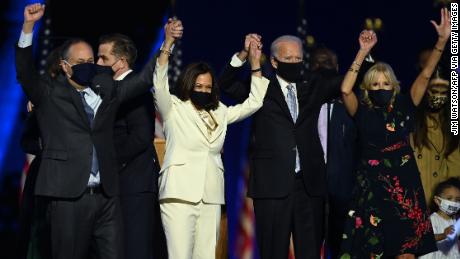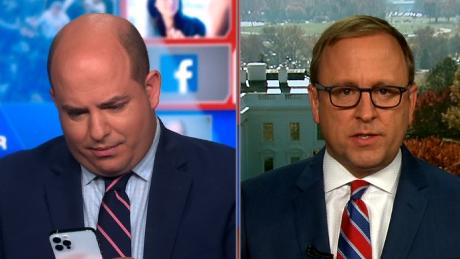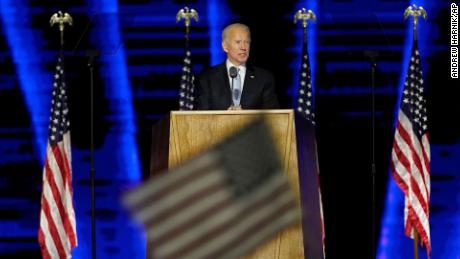(CNN)President-elect Joe Biden and Vice President-elect Kamala Harris say they will move the US Covid-19 pandemic response in a dramatically different direction.
"The pandemic is getting significantly more worrisome all across the country," Biden said on Friday. "I want everyone to know on day one, we're going to put our plan to control this virus into action."
There were dauntingly high new case numbers last week, and by the time Biden takes office January 20, the influential University of Washington Institute of Health Metrics and Evaluation model projects there will be more than 372,000 Covid-19 deaths -- that's 135,000 more than the current total.
"By the time that the Biden-Harris administration takes over, this virus is going to have already run rampant through the communities across the United States," Dr. Megan Ranney, an emergency physician at Brown University, said Sunday on CNN.
While President Donald Trump's administration touted the end of the pandemic as one of its accomplishments, Biden has laid out a pandemic plan on his campaign website and it's now echoed on the Biden-Harris transition website published Sunday.
Biden's transition team on Monday announced members of his coronavirus advisory board, which will be led by former Surgeon General Dr. Vivek Murthy, former US Food and Drug Administration Commissioner Dr. David Kessler and Yale University's Dr. Marcella Nunez-Smith. Other members are Dr. Luciana Borio, Rick Bright, Dr. Ezekiel Emanuel, Dr. Atul Gawande, Dr. Celine Gounder, Dr. Julie Morita, Michael Osterholm, Loyce Pace, Dr. Robert Rodriguez and Dr. Eric Goosby.
That doesn't mean Trump's White House coronavirus task force will be turning off the lights.
Dr. Ashish Jha, dean of the Brown University School of Public Health, said Sunday on CNN that it's critically important that Trump and Biden's respective coronavirus task force teams work together.
"First and foremost, I think we should demand that there be cooperation," Jha said.
Here are five ways Biden says the US coronavirus response will change when he's President.
Increased testing and contact tracing
Number one on Biden's list of promises is more testing and contact tracing.
Testing has ramped up dramatically since the earliest days of the pandemic, but scientists say the nation needs tens of millions of tests per day to keep the country open safely, and even 10 months into the pandemic, there still aren't enough.
Without testing, scientists can't get a clear picture of where the virus is taking off. With as many as 40% of Covid-19 cases estimated to be asymptomatic, a quick test result is key to stopping the spread of the disease. And research has found about 75% of infected contacts need to be quarantined to stop the spread.
Biden promises all Americans will have access to "regular, reliable, and free testing."
They say they'll double drive-through testing sites, invest in new technology, and create a U.S. Public Health Jobs Corps that would mobilize "at least 100,000" culturally competent contact tracers.
Biden says he would also borrow a page from the Franklin D. Roosevelt administration and create something akin the War Production Board, which helped supervise the conversion of peacetime factories to plants that made military equipment and weapons. A Pandemic Testing Board, Biden says, would help produce and distribute tens of millions of tests.
Additional investment in vaccines and treatments
Since March, the Trump administration has spent billions to develop and scale up Covid-19 vaccines and treatments through Operation Warp Speed. Its goal is to produce and deliver 300 million doses of safe and effective vaccines by January 2021. Several potential vaccines are in large-scale trials.
States filed their vaccine distribution plans with the CDC weeks ago. But they have received no funds from Congress to start building the infrastructure they will need to distribute those vaccines to tens of millions of people.
States filed their vaccine distribution plans with the CDC weeks ago. But they have received no funds from Congress to start building the infrastructure they will need to distribute those vaccines to tens of millions of people.
Biden promises to invest $25 billion more to make and distribute vaccines to everyone in the US for free.
They say politics will play no role in whether a vaccine is approved, and the new administration will make clinical data for any approved vaccine publicly available.
The Biden campaign also promised therapies and drugs would be affordable.
Mandatory masks and more PPE
Biden has said he'd work with local governors and mayors to mandate masks in public. An October modeling study showed that if 95% of Americans wore masks, more than 100,000 lives could be saved from Covid-19.
The Biden team also says it will take on problems with personal protective equipment for health care workers.
Several studies have shown that there has been a severe shortage of personal protective equipment since early 2020, and some shortages have gotten worse, according to a September analysis by the American Hospital Association.
Often, medical and nursing home staff has had to reuse gloves, masks and other protective equipment at their peril. The union, National Nurses United, estimates more than 1,700 health care workers have died in the pandemic. Between March and May, 6% of all patients hospitalized with Covid-19 were health care personnel, according to an October CDC report.
While the Trump administration has claimed to use the Defense Production Act to step up production of PPE, a nonpartisan analysis in September found it has rarely done so.
Biden said he would use that power to make sure the national supply stocks are fully replenished. He also promised to help create American-sourced products so the US would not be dependent on other countries.
In addition to encouraging Congress to pass an emergency package to help schools pay for pandemic supplies, the Biden administration would create a "restart package" to help small businesses pay for protective equipment and plexiglass.
A push for 'clear, consistent, evidence-based guidance'
The Biden administration also says it would encourage the CDC to take a more active role in providing specific guidance to communities about when they need to shut down. Trump critics say the agency has been sidelined in favor of reopening the economy.
The Biden team says it would create a Nationwide Pandemic Dashboard so people could gauge for themselves, in real time, how much disease is in their ZIP code. That level of data has been hard to find.
Biden would also create a Covid-19 Racial and Ethnic Disparities Task Force that would become a permanent Infectious Disease Racial Disparities Task Force after the pandemic that would address problems with disparities in the public health system. Black, Hispanic and American Indian communities have had significantly higher rates of infection and hospitalization.
Rejoining WHO and searching for future threats
The Trump administration formally began the process of withdrawing from the World Health Organization in July. Biden says he would re-establish the US relationship with WHO.
The Biden administration also says it plans to expand the CDC's ranks oversees, so that its disease detectives can spot future threats. The Trump administration had cut some of those jobs, including in the China office.
Get CNN Health's weekly newsletter
Sign up here to get The Results Are In with Dr. Sanjay Gupta every Tuesday from the CNN Health team.
During the Trump administration, PREDICT, the pathogen-tracking program that looks for future disease threats such as the coronavirus, ended. Biden said he'd re-launch it.
Biden also said he would restore the White House National Security Council Directorate for Global Health Security and Biodefense, which the Trump administration had folded into another organization in 2018. It had been created by the Obama administration in 2016 to help managing threats like Ebola.
